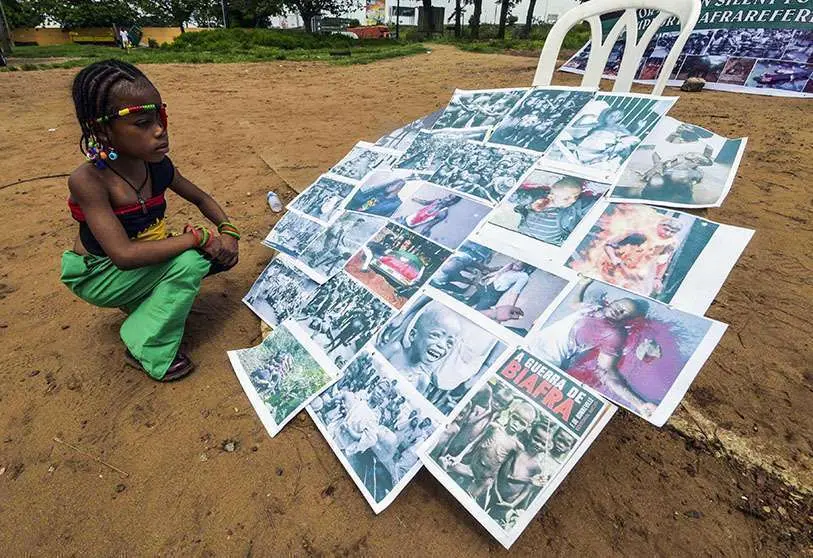50 years of the Biafra War

When we remember the last century with the sad balance of so many wars - First and Second World Wars, the Spanish, Korean, Vietnamese... we usually forget the cruelest of them all: the one in Biafra, which these days is 50 years old, still lives the consequences of the great massacres that caused the combats and the epidemics and a famine, whose details shook the world in those years - between 1967 and 1970.
Biafra was one of the regions into which the Nigeria that had just gained its independence - 1960 - and held elections, was divided. It was the region that accumulated the most wealth, from a prosperous agriculture, variety of metals, fishing reserves in the Atlantic and, above all, oil. But its inhabitants, of the Ibo and Aruba tribes, almost all of whom were Christians, were not satisfied and maintained a traditional confrontation with the Hausa and Fulani of the north.
The conflict had various origins and a mixture of hatreds between the Ibo and Hausa, the most numerous tribe, which was mainly Muslim. The result of the elections had generated discontent and the conviction that the results had been rigged. Their privileged position in the south-east of the country was an argument for them to complain that they were the breadwinners and that their varied incomes were not being used to improve their lot. The old tribal and Hausa conflict soon erupted.
After tensions and minor armed clashes, the Biafra military, led by Colonel Odumegwu Ojukwu, proclaimed the independence of the Republic of Biafra, with 14 million inhabitants and a capital city of Eunugu, in July 1967. The government in Lagos - then the capital of Nigeria - reacted quickly and sent a large contingent of armed forces to Biafra.
The confrontations, of an unprecedented cruelty in the new Africa, recently liberated from colonialism, were further complicated by a humanitarian crisis even more dramatic than the fratricidal struggle itself. The Ibos, despite being in a minority and worse armed, defended their independence until the last moment. The death toll is between 500,000 and three million, including 100,000 Nigerian soldiers. The territory was destroyed .
The images of the tragedy with the dead accumulating in the streets and the malnourished children dying of hunger caused consternation shown on the television still in black and white. The Republic of Biafra enjoyed many external sympathies, including those of France and Spain, but officially only four countries recognised it and all were defenders of discrimination and apartheid such as South Africa or white-controlled Rhodesia, as well as Israel and Portugal.
The Portuguese dictatorship of Oliveira Salazar, who recognised the Republic of Biafra, exchanged embassies and provided assistance and air communication facilities that the other countries denied them, provided enormous assistance to the Iberians. The weapons entered through the airport on Cape Verde's Isla de la Sal. This conflict favoured Portugal's colonial policy.
The end of the war was announced by President Jakubu Gowon, then President of Nigeria. It was a pacifist speech. He promised not to take reprisals against the defeated and to readmit the rebellious Biafrio military to the armed forces. And he kept his promise. General Ojukwu fled to the Ivory Coast, where he worked for a few years as a truck driver, and when he finally returned to Nigeria he was symbolically sentenced to ten months in prison.

